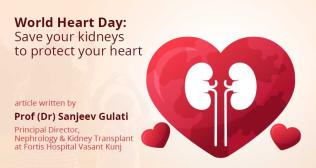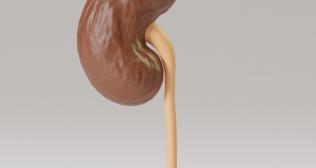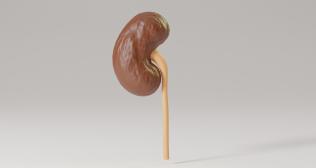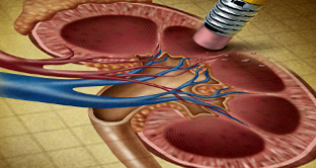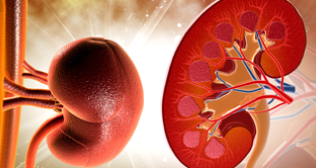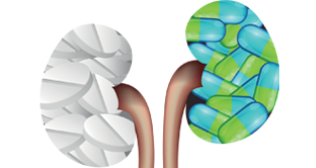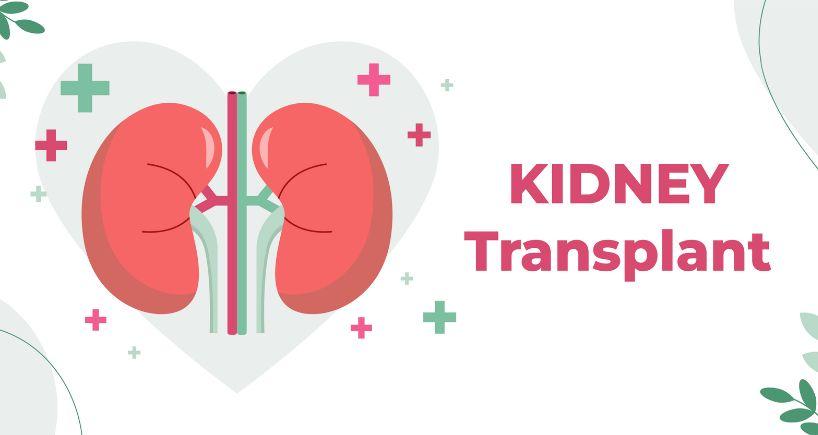
Kidney Transplant Hospital in Mumbai
A kidney Transplant is a surgical procedure performed to replace a diseased kidney with a healthy kidney from a living or deceased donor. Most often family members or others who are a good match can donate one of their kidneys. This kind of transplant is called a living transplant. People who have donated a kidney can continue to live healthy lives with just one healthy kidney. Usually, the person getting a transplant gets just one kidney and in rare instances both kidneys from a deceased donor.
Fortis Mumbai - Best Hospital for Kidney Transplants in Mumbai
Fortis Hospitals Mumbai's Kidney Transplant Department provides comprehensive care for patients of all age groups (including pediatric patients) requiring kidney transplantation, due to end-stage renal disease. We offer patients highly advanced transplantation techniques such as living-donor kidney transplant. Our transplant specialist surgeons have expertise in performing complex kidney transplantation procedures including ABO incompatible, positive crossmatch and paired donation kidney transplants.
Our kidney transplant team utilizes a collaborative approach to bring customised care to patients at each stage of the treatment. The patient is actively involved in understanding the risks and benefits of the care plan, to enable a smooth transition post-transplant, and to lead a longer, better quality of life. Pivotal to our kidney transplant program is the psychosocial and mental well-being support, health education and advanced care accessible to the patient and the family throughout the clinical journey. We stand as a testimony to successful kidney transplants with best surgical outcomes at par with international standards, eliminating patients’ need for lifelong dependence on dialysis.
Our Kidney Transplant Specialists Team
Our multi-disciplinary kidney transplant team ensures personalized care:
- Kidney Transplant Surgeons
- Transplant Nephrologists
- Paediatric Nephrologists
- Onco-nephrologists
- Dermatologists
- Anaesthetists
- Well-trained transplant nurses, transplant coordinators, social workers, psychologists and clinical nutritionists
The team is well supported by intensive care specialists, infectious diseases specialists, radiologists and clinical pharmacologists.
When is a kidney transplant needed?
People with end-stage renal disease (ESRD) need to have waste removed from their blood by a process called dialysis or need a kidney transplant to stay alive.
The kidneys are two bean-shaped organs located on each side of the spine, below the rib-cage. The main functions of the kidneys are to filter and remove waste, minerals and fluid from the blood, producing urine. When the kidneys lose their filtering ability, harmful levels of fluid and waste accumulate in the body, raising blood pressure, and resulting in kidney failure. When the kidneys lose about 90% of their ability to function normally, it is called end-stage renal disease (ESRD).
Causes of ESRD include:
- Diabetes or high blood pressure
- Glomerulonephritis (inflammation of kidney’s filtering units, glomeruli)
- Polycystic kidney disease
- Other congenital defects of the kidneys
A kidney transplant is mostly the preferred treatment for kidney failure, compared to a lifetime on dialysis and is associated with:
- Better quality of life
- Fewer dietary restrictions
- Lower risk of death
- Lower treatments costs
However, for certain people with kidney failure, a transplant may be riskier than dialysis. Conditions that may prevent someone from being eligible for kidney transplant include:
- Advanced age
- Alcohol or drug abuse
- Active/recently treated cancer
- Dementia or other poorly controlled mental ailment
- Severe heart disease
- Any other factors that could affect the ability to undergo the transplant procedure
What are the risks associated with Kidney Transplants?
Kidney transplant can treat advanced kidney disease and kidney failure but it is not a cure and some forms of kidney disease may return after the transplant. The decision of undergoing the procedure needs to be taken after detailed discussion with the doctor, family and friends to understand associated risks and benefits.
The risks associated with kidney transplant include:
- Bleeding
- Infection
- Failure or rejection of the donated kidney
- Leakage from or blockage of the ureter (tube linking kidney to the bladder)
- Death, heart attack and stroke
- The risks associated include rejection of the donor organ as a normal reaction of the body’s immune system to attack a foreign object or tissue. The medications used to prevent or treat rejections have side-effects.
The anti-rejection or immunosuppressants cause variety of side-effects including:
- Bone thinning (osteoporosis) or bone damage (osteonecrosis)
- Diabetes
- Excessive hair growth or hair loss
- High blood pressure
- High cholesterol
Other side-effects may include:
- Acne
- Increased risk of cancer particularly skin cancer and lymphoma
- Infection
- Oedema (puffiness)
- Weight gain
What tests are conducted to evaluate a patient before getting a kidney transplant?
The evaluation includes:
- A thorough physical exam
- Blood tests - to assess priority on the donor list and find a good donor match.
- Diagnostic tests - X-ray, CT/MRI scans, kidney biopsy and dental exams. Women may need to undergo a pap test, gynaecological exam and mammogram.
- Psychological and social evaluation - including stress, financial concerns, support from family and friends post the surgery.
Once the tests are completed, the transplant team assesses the patient’s clinical condition to undergo the kidney transplant and decides on the best treatment plan.
What types of kidney transplants are available?
Deceased donor kidney transplant - when a kidney from someone who has recently died is removed with consent of the family or from a donor card and placed in the recipient whose kidneys have failed.
Living donor kidney transplant - when a kidney from a living donor is removed and placed in the recipient whose kidneys functions are impaired. Since one donated kidney can replace two failed kidneys, living-donor kidney transplant offers an alternative to deceased-donor kidney transplant.
Pre-emptive kidney transplant - when a kidney transplant is conducted before the kidney function deteriorates to the point of needing dialysis. Currently, most kidney transplants are performed on people who undergo dialysis, since their kidneys are unable to adequately clean impurities from the blood.
Family members are usually the most compatible living kidney donors however successful living donor transplants are also common with kidneys donated from unrelated people such as friends or co-workers. In case a compatible living donor is not available, the patient will be placed on a waiting list for a deceased donor kidney. The number of people waiting for a transplant is more than the available deceased donor kidneys hence the waiting time maybe long.
Staying healthy while on the waiting list
During the long wait for a donated kidney or a scheduled transplant surgery, it’s important to stay healthy. Leading an active and healthy lifestyle will aid in speedy recovery from surgery. Points to keep in mind:
- Continue with medications, as prescribed
- Follow diet and exercise guidelines
- Involving self in healthy activities, including relaxing and spending time with family and friends
- Keep in regular touch with the care team including information on any significant changes in health.
Before the procedure
Finding a donor match - A kidney donor can be living or deceased, related or unrelated to the patient. The transplant team considers several factors to evaluate if a donor kidney will be a good match, these tests include:
Blood typing - it is preferable that the donor and patient’s blood type matches or is compatible. Blood-type incompatible transplants are also possible but require additional medical treatment before and after the transplant to reduce the risk of organ rejection, these are called ABO incompatible kidney transplants.
Tissue typing - If the blood type is compatible, the next step is a tissue typing test called human leukocyte antigen (HLA) typing. This test compares genetic markers and a good match means it is less likely that the patient’s body will reject the organ, increasing the chances for the kidney transplant to last longer.
Crossmatch - The third and final matching test involves mixing a sample of the patient’s blood with the donor's blood in the lab. This test determines whether antibodies in patient’s blood will react against specific antigens in the donor's blood. A negative crossmatch means they are compatible, a positive crossmatch kidney transplants also are possible but require additional medical treatment before and after the transplant to reduce the risk of the patient’s antibodies reacting to the donor organ.
The transplant team may also consider age matching, kidney size and infection exposure to find the most appropriate kidney donor.
During the procedure
Kidney transplants are performed with general anaesthesia, so the patient is asleep during the procedure. The surgical team monitors heart rate, blood pressure and blood oxygen level throughout the procedure. During the surgery:
- The surgeon makes an incision in the lower part of one side of the abdomen and places the new kidney into the recipient’s body. Unless recipient’s kidneys are causing complications such as high blood pressure, kidney stones, pain or infection, they are left in place.
- The blood vessels of the new kidney are attached to blood vessels in the lower part of the abdomen, just above one of the legs.
- The new kidney's ureter (tube linking the kidney to the bladder) is connected to the recipient’s bladder.
After the procedure
Recovering in the hospital - Healthcare team will monitor the patient’s condition in the hospital's transplant recovery area to watch for signs of complications. The new kidney will make urine like they did when they were healthy. This happens immediately however in some cases it may take several days and temporary dialysis may be needed till then. Most kidney transplant recipients can return to a normal routine within eight weeks post the transplant.
Frequent check-ups - After leaving the hospital, close monitoring is necessary for a few weeks to evaluate if the new kidney is functioning and if there is no rejection by the body. Blood tests may be needed several times a week.
Life-long medications - a number of medications such as immunosuppressants (anti-rejection medications) and drugs to reduce the risk of other complications, such as infection post the transplant, will be prescribed.
Coping - seeking the support of friends and family members can help cope during this time. The transplant team may also assist in finding resources such as a support group for transplant recipients or rehabilitation services.
Diet - a clinical nutritionist on the transplant team will discuss nutritional needs to help reach and maintain a healthy weight through diet and exercise to reduce the risk of heart disease, high blood pressure and diabetes.
Exercise - exercise and physical activity should be a regular part of life to continue improving overall physical and mental health. The transplant team will recommend a physical activity program based on individual needs and goals.
Fortis Healthcare, best hospital in India stands as the beacon of excellence in Mumbai for kidney transplant procedures, offering world-class treatment and care. Renowned as the best hospital for kidney transplants in Mumbai and across India, Fortis Healthcare ensures top-notch medical expertise, cutting-edge procedures, and compassionate care for patients in need of kidney transplants. With a dedicated team of specialists and state-of-the-art facilities, Fortis Healthcare continues to uphold its commitment to transforming lives through successful kidney transplants, providing hope and a new lease on life for both recipients and donors alike.
Watch: What is Kidney Transplant?
Dr Haresh Dodeja, consultant of nephrology at Fortis hospital, Mulund provides us with significant guidance about kidney transplants:
Visit our Best Kidney Transplant Hospitals in Mumbai, India
Fortis Hospital Mulund, Mumbai
Address: Mulund Goregaon Link Road, Mulund-West, Mumbai, 400078
Ph. 02268846143
Fortis Hiranandani Hospital Vashi, Navi Mumbai
Address: Mini Sea Shore Road, Sector 10, Vashi, Navi Mumbai, Maharashtra - 400703
Ph. 02268846143
S L Raheja Hospital - A Fortis Associate Mahim, Mumbai
Raheja Rugnalaya Marg, Mahim (W), Mumbai, Maharashtra - 400016
Ph. 02268846143
Popular Searches :
Hospitals: Cancer Hospital in Delhi | Best Heart Hospital in Delhi | Hospital in Amritsar | Hospital in Ludhiana | Hospitals in Mohali | Hospital in Faridabad | Hospitals in Gurgaon | Best Hospital in Jaipur | Hospitals in Greater Noida | Hospitals in Noida | Best Kidney Hospital in Kolkata | Best Hospital in Kolkata | Hospitals in Rajajinagar Bangalore | Hospitals in Richmond Road Bangalore | Hospitals in Nagarbhavi Bangalore | Hospital in Kalyan West | Hospitals in Mulund | Best Hospital in India | | Cardiology Hospital in India | Best Cancer Hospital in India | Best Cardiology Hospital in India | Best Oncology Hospital In India | Best Cancer Hospital in Delhi | Best Liver Transplant Hospital in India
Doctors: Dr. Rana Patir | Dr. Rajesh Benny | Dr. Rahul Bhargava | Dr. Jayant Arora | Dr. Anoop Misra
| Dr. Manu Tiwari | Dr. Praveer Agarwal | Dr. Arup Ratan Dutta | Dr. Meenakshi Ahuja | Dr. Anoop Jhurani | Dr. Shivaji Basu | Dr. Subhash Jangid | Dr. Atul Mathur | Dr. Gurinder Bedi | Dr. Monika Wadhawan | Dr. Debasis Datta | Dr. Shrinivas Narayan | Dr. Praveen Gupta | Dr. Nitin Jha | Dr. Raghu Nagaraj | Dr. Ashok Seth | Dr. Sandeep Vaishya | Dr. Atul Mishra | Dr. Z S Meharwal | Dr. Ajay Bhalla | Dr. Atul Kumar Mittal | Dr. Arvind Kumar Khurana | Dr. Narayan Hulse | Dr. Samir Parikh | Dr. Amit Javed | Dr. Narayan Banerjee | Dr. Bimlesh Dhar Pandey | Dr. Arghya Chattopadhyay | Dr. G.R. Vijay Kumar | Dr Ashok Gupta | Dr. Gourdas Choudhuri | Dr. Sushrut Singh | Dr. N.C. Krishnamani | Dr. Atampreet Singh | Dr. Vivek Jawali | Dr. Sanjeev Gulati | Dr. Amite Pankaj Aggarwal | Dr. Ajay Kaul | Dr. Sunita Varma | Dr. Manoj Kumar Goel | Dr. R Muralidharan | Dr. Sushmita Roychowdhury | Dr. T.S. MAHANT | Dr. UDIPTA RAY | Dr. Aparna Jaswal | Dr. Ravul Jindal | Dr. Savyasachi Saxena | Dr. Ajay Kumar Kriplani | Dr. Nitesh Rohatgi | Dr. Anupam Jindal |
Specialties: Heart Lung Transplant | Orthopedic | Cardiology Interventional | Obstetrics & Gynaecology | Onco Radiation | Neurosurgery | Interventional Cardiology | Gastroenterologist in Jaipur | Neuro Physician | Gynecologist in Kolkata | Best Neurologist in India | Liver Transfer |







